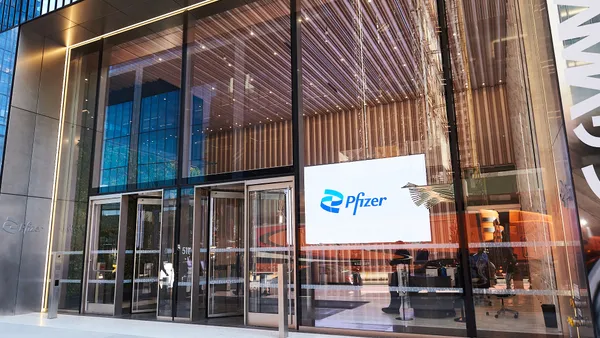ProCom, part of CommonHealth Adult Distance Learning in Promotional Education Programs Karen Sullivan Editor/Writer, ProCom, part of CommonHealth Michael Zilligen General Manager, ProCom, part of CommonHealth Healthcare practitioners (HCPs) are constantly looking for the most current medical information, but are short on time to acquire it. With the advent of the Internet, medical education developers can deliver information faster than ever. Taking a cue from the success of online degree programs, today’s education programs utilize the power of the Internet to reach countless HCPs, and increase knowledge retention by blending electronic media with the methodologies of adult distance learning. Adult Distance Learning The ubiquitous presence and user-friendliness of online learning resources have helped medical education programs find a home along the information superhighway. But how does the introduction of adult distance learning theory make education more effective? • Traditional methods of information delivery, such as meetings, symposia, and publications, are transformed from time-restrictive and inflexible to fully convenient, with information available any time of day or night in multiple forms including the Internet, Podcasts, Webcasts, or video. • Information once relegated to PowerPoint presentations or live lectures becomes 100% portable and available with real-time speed. • Information is delivered with an emphasis on the audience’s varied learning styles, promoting a greater degree of retention. Experience shows that using Internet-based delivery is just as effective as using traditional formats. Adult learning programs like those offered by online universities are developed based on a widely proven theory: an individual’s learning style dictates how information is best absorbed and, as a result, retained longer. This theory can be applied to the delivery of medical education so that HCPs receive and retain educational content while receiving the information they need. Take for example a company set to deliver a dinner program on emerging medical breakthroughs in oncology. Medical education developers often utilize multimedia supporting material such as a slide presentation or handouts to reiterate information. Many HCPs wanting this information simply don’t have time to attend a dinner program. In addition, some HCPs may prefer absorbing information by reading, while others prefer listening. Delivering information using the multimedia approach taken by online universities addresses these variations in individual learning styles. An audio and/or video recording of the lecture may also be made to amortize the content. If an HCP prefers to hear information rather than read it, listening to a voiceover of the lecture via a Podcast makes it more likely that the HCP will retain that information. Alternately, if reading is the preferred method, the HCP can review the information page by page, along with speaker text, at leisure using a PC or PDA. Unlike symposia or lectures, in which the information flow stops with the completion of the event, information delivered in a multimedia format is available any time in the way the information is best retained by individual HCPs. Caveats of Distance Learning Because distance delivery of medical education is similar to that of online university programs, there are similar caveats. The most obvious is the lack of human interaction. Another consideration among program developers is that the goal of optimizing HCP performance with traditional promotional education formats has not yet been met; this may be due to a combination of ever-evolving technologies utilized by developers to deliver information, and by HCPs to receive it. These issues may be circumscribed by offering asynchronous means of communication. Instead of live, real-time (synchronous) attention from a subject matter expert or instructor at a set time, HCPs can post questions to a password-protected message board for review and response, any time of the day or night, and receive an answer relatively quickly. Education has changed forever in the wake of the Internet, which has made information available to more people than ever before. In medical education, the added benefit of instant access to a wealth of specialized subject matter delivered using many different methods provides a time-saving and cost-effective alternative to traditional learning environments. Various learning styles should be considered at the onset of development, along with methods of delivery, to maximize the effectiveness of the program. n Thanks to a combination of Internet technology and adult learning strategies, traditional delivery of promotional education programs — via dinner meetings, symposia, and publications— is rapidly evolving. SPONSOR: ProCom, a part of CommonHealth, creates and delivers unique domestic and global educational programs across multiple channels that maximize participation and retention. For more information, visit commonhealth.com/procom.
An article from


Adult Distance Learning in Promotional Education Programs
Filed Under:
Commercialization










